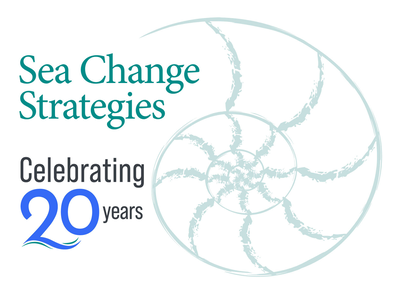The Stoic Fundraiser: Resilience in a World on Fire
If you’re a fundraiser right now, you’re likely feeling anxious.
Markets are unstable. Philanthropic norms are shifting. Donors are cautious. Government funding is on the line. And many of the values that drive our work—equity, justice and truth—feel under threat.
And yet, amidst this swirl, I’ve been reading The Stoic Challenge by William B. Irvine—a book about cultivating resilience, calm and clarity in moments just like this.
Stoicism is often misunderstood as cold or emotionless. In truth, it’s about emotional discipline. It’s about how to stay rooted and effective even when the world around you feels out of control.
Here’s how I’ve been applying some of Irvine’s lessons to fundraising—and how you might too.
1. Reframe the Setback
Irvine describes what he calls a “Stoic test mindset.” Instead of seeing setbacks as failures, Stoics treat them as inevitable challenges issued by the universe—a test of character and creativity.
Did that conversation with your boss about a reforecast land with a thud? Did the constraint your General Counsel gave you on messaging make your appeal less effective?
Irvine suggests reframing these moments. Instead of labeling them failures, treat them as setbacks. Log them in a journal: what was the source of the setback? What was your emotional reaction?
And then ask yourself the Stoic question: Am I causing myself unnecessary suffering?
This practice can help you separate what happened from how you’re feeling about it—and that space is where new possibilities emerge.
2. Control the Controllables
This is Stoicism’s greatest gift to fundraisers: the radical act of focusing on what we can control.
You can’t fix inflation. You can’t reverse Supreme Court decisions. You can’t guarantee that your biggest donor’s stock portfolio won’t crash.
But you can keep showing up with integrity. You can write the clearest, most compelling case for support. You can send the thank-you note. You can prepare the team to weather uncertainty together.
Every time we redirect our energy toward action, not anxiety, we reclaim power.
3. Choose Discomfort on Purpose
Irvine encourages practicing “voluntary discomfort”—doing hard things on purpose to build psychological strength.
As fundraisers, this might mean making a case for a big budget investment, giving a presentation to your leadership team or having a courageous conversation with a co-worker who triggers you.
The point is: choosing courage over comfort builds capacity. It makes us more ready for the real challenges when they arrive.
4. Build a Resilient Inner Culture
Finally, Stoicism reminds us that resilience isn’t individual. It’s something we can build into our teams and organizations.
Encourage each other to take setbacks in stride. Normalize rest and reflection. Create space for honest conversations about fear and hope.
In other words: practice being tough and tender at the same time.
The world is chaotic. But that’s not new. How we choose to meet the chaos with minimal emotional suffering is the task at hand. I’d recommend The Stoic Challenge to any fundraiser or leader who is looking to do just that.
